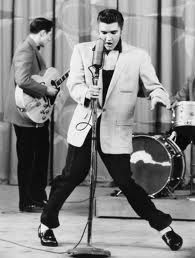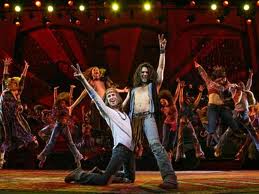When I taught 5th grade, my students memorized the Bill of Rights. Listening to each young person recite our list of freedoms gave me, their teacher, a new appreciation for our democratic government. Congress shall make no law respecting an establishment of religion, or prohibiting the free exercise thereof; or abridging the freedom of speech, or of the press.[i]
Americans are free to speak. Patrick Henry was willing to trade his life for the sake of a few words. Two hundred years later, the American free press continues its war against tyranny.
I was moved by the story of Dan Eldon[ii], a photojournalist killed while covering civil war in Africa. Through the magic of television journalism, his sister took us to the places he loved in Africa, retracing his steps and meeting with his friends. She and photographers reconstructed his life up to the moment of his death, his sacrifice for the freedom of writers and photographers to tell the truth.
Justifiably, Americans hold an unshakable pride in our free press. Our reporters and photographers have opened the doors on repression in China, reported atrocities in Rwanda and Iran, and unseated political leaders in the White House and Mexico.
The power of a free press is almost unimaginable. The History Channel documents the story of the French Resistance, an entire movement of common people fighting the Nazis through use of printed posters and newspapers. In Africa and in Europe, the power of the press to preserve freedom inspires awe.
This heightens the irony of the following sad truth. Today in America, we uphold the freedom of the press, while we have prostituted its significance.
My fifth graders now feel that our precious freedom of the press is meant to protect their rights to rent R-rated movies. As a sacred protection of the noble right to express religious and political views…they have not a clue, a hint, or an inclination. The First Amendment gives store owners the right to display and promote profanity, nudity, and violence, making sure young children will be influenced by a free flow of depravity. The First Amendments’s role in preserving our liberty, the foundation of our way of life…yawn…hmmm…what’s for dinner?
America is awash with crudity and violence. All the while, media and entertainment industry executives scramble to hide behind the noble mantra Freedom of the Press, their banners raised and defended at the great cost of American life. In the same breath or frame shot, media and entertainment industry executives call out to American citizens, “We have rights, you know. Don’t mess with our freedom. That’s censorship!”
Interesting. Americans are able to express any level of nudity and violence, largely because the free press establishment will expend great energy to prevent the slightest restriction on crassness in the public arena. Reporters, scriptwriters, painters, songsters, and producers have joined in a strange alliance, suggesting that the promulgation of expressions of depravity is on the same noble plane as Jeffersonian editorials written to defend republican freedom.
Funny. While we seem unable to hold back the tide of bad taste and filth, America has almost succeeded in eliminating 100% any reference to religion, and more specifically, any reference to God. If we call “Him” the great force, the power-be-with-you, the spirit, the master, fate, or the hand of justice, we can print it. But dare we call “Him” God, then we must separate him. From what?
And this is the second ironic twist on the First Amendment freedom of the press. While we refuse to limit and restrict the promulgation of violence, we are definitely willing to restrain the press, to restrict it, to limit it—when and only when it comes to God.
Sad. America grew strong on the notion that free men could freely think for themselves. Yet, we have a media frozen in the notion they must protect common man from the mention of “God.” I want to call out in the newspapers, “God is alive. He’s not dead. You never killed Him. You just quit talking about Him.” But these are fighting words. They must be restricted. By whom? The Free Press.
I want to call out again. “Hey, this is America. We’re free. Remember? We can talk about pubic areas, breasts, and God.” I want to shout and accuse, “Censorship.”
But not in America. We call it Neutrality. Now that’s an American oxymoron for you. It’s as if by coining a word, we can create an American citizen devoid of opinion, thus, and American without bias. He’s a genetic wonder, a DNA marvel, the Neutral Man.
Let’s think about this Neutral Man for a minute. Has anyone ever met an American without an opinion? In reality, Americans are famous for having opinions.
Years ago, a young foreign exchange student from Japan came to talk with my fifth graders. She talked about foods, customs, language…all the things unique to Japan and United States, the things she had to relearn in order to understand her temporary ‘home’ in the States Just before she finished speaking I asked her, “What major difference do you find between the people themselves, the Japanese and the American people?”
With a look of slight timidity, she smiled and answered, “The Americans, well,…they…if you ask them a question, they’ll tell you what they think. They’re much more willing to speak out.”
“You mean, ‘We’re rude?’” I offered.
She broke into an open and relaxed laugh. Then she diplomatically suggested, “Well, in my country, people are more reserved. They don’t say everything that’s on their mind.”
But the students and I knew what she meant, even as she attempted to say it nicely because she liked us. We’re rude. America is the land of bias. Mostly, we Americans seem rather proud about it.
Given this truth, just where do we think we’re going to find Mr. Neutral? Yes, God and religion are a source of bias. How could it be otherwise? Religion with its claims on truth forms the foundation of law, of nations, of morality. It creates an order out of chaos, a way of structuring the world to make sense of small, daily events. Everybody has Religion. We all need to give structure to chaos.
Even the atheist has religion. But then we call it philosophy. That means God is dead. But isn’t that very idea of a dead god a religious position? Or maybe we’ll invent a neutral religion. We’ll just call him the force. The Force be with you? Sounds suspiciously like The Force is god’s younger, smaller distant cousin. What if The Force were dead? Who could kill Him? And when?
Our major problem today in the media is not in its threat to freedom of the press, but in its intensely biased effort to sell the idea of neutrality. Are there really two worlds, the biased world and the neutral world? Can we really accept the assurances of a mere human being who insists he’s the unbiased gatekeeper for neutrality?
Can we really look any person in the face and accept that he/she doesn’t care? That’s it’s all the same to them? If it is really all the same…if neutral means everything goes…let it all hang out…then let’s change the force back into God. If it’s really all just the same.
Just what do you mean by the force? Assuming instead that we all work from a point of view, I’d rather know up front. If you openly and forthrightly declare your definition, then I don’t have to guess. Is god dead? If I know what you think, dead or alive, then we don’t have to argue about it. I certainly don’t expect you to change your mind or agree with me. It just helps to know what you mean when you talk. It helps to fill in the spaces between the words.
You see, after years of writing, I’ve learned there’s often a bigger story between the words.
Every writer burns with the indignation of losing precious words and thoughts to the scissors of an editor, as she works to make a story fit eight inches of newsprint. More often than we like, she crosses out the boring parts, our own personal favorites left in the story because we the writer especially liked them.
But even before the editor gets her chance to snip and cut, before we writers write the words we write, we are all influenced by bias. What else accounts for the urge of one reporter to spend a lifetime telling the story of the rise of Nazi regime as an alarm for future generations…while another reporter chases Loni Anderson to find out if she’s really as mean (or beautiful) as Burt Reynolds said in the latest article?
Every time a reporter chooses a story idea, he exercises bias. He decides which point of view deserves to be heard, and he silences the others by ignoring them. Working together, hiding behind the First Amendment, the American journalistic empire is not eliminating bias. Rather, it is building a consensus of bias.
Taken together, choosing the story and writing the story, we writers can hardly avoid the influence of personal bias. And as we write to please our editors…to get our stories in print…we work to satisfy the mainline bias, the industry standard, built upon the need to please editors who carefully pick and choose words to fit the story they want to tell.
“No, I don’t think we want to emphasize that point in this story.” And the editor crosses out God and Jesus.
The only time mainstream writers are allowed to write God and Jesus in print is when they’re writing about someone who hates them, or at the very least, considers them quaint. How else can you explain the extraordinary press received by the Jesus Seminar?
I don’t begrudge the atheists their press. After all, this is the land of the free-thinking man. But where is the free press of rebuttal? Where are the scholars who can press these men into a test of intellect and integrity? Unfortunately, these challengers hold God and Jesus in reverence, as believers, and, as such, are subject to the editorial scissors. Where is a mainstream “neutral” reporter demanding that Jesus Seminar members declare their personal bias and evaluating the influence of atheism’s bias on their research?
The First Amendment never guaranteed neutrality. Rather, it enjoined the government from establishing a single, required governmental religion. It was written to guarantee the expression of all ideas, even the love of God.
Our Founding Fathers knew that every human being is guided by bias—a bias of faith and religion. The authors were men of deep religious faith, a faith that gave them the inspiration and courage to fight and to die for the First Amendment. They never dreamed a First Amendment inspired of God would be used to remove God from national dialogue.
Is there a remedy to this mess? It might be easier than you think. Let’s…each of us…declare our bias up front.
I suggest it would be immensely more honest if American journalists adopted a Secondary Byline policy. Why not try to give readers a clue as to which words were cut out, why the paper interviewed a Buddhist or a democrat instead of a Christian or a republican? Let the reader have a chance to decide what information is missing, and where the writer and editor molded the words to fit their own personal prejudice. Let’s report the story, and give two bylines:
Presidential Candidates Debate American Morality
by Newt Rull
by Professed Atheist…or Christian, Muslim, Undecided…or Whatever!
With our biases declared front and center, we might finally open healthy national dialogue by exposing all points of view, in full disclosure, being willing to accept full responsibility for our own particular point of view, our own bias. Wouldn’t the reader better understand a new story involving a moral point of view in the context of the writer Mr. Rull’s personal bias? And —what does this particular story have to do with the bias of the editor who cut the words out and the publisher who owns the paper who paid for the story?
Until then…please, do me one favor. A tiny favor. Just don’t ask me to believe Mr. Newt Rull is unbiased. Nor his editor. Nor the publisher. Not in America. Sadly…and most especially…even in the Land of the Freedom of the Press.
********************************************
Television 9/5/99: Dying to Tell the Story, C. 1998 Turner Broadcasting, story of photojournalist Dan Eldon, told by his sister and other family members (Kathy/Amy/Michael) about his death 4 years earlier (approx. 1994) in Africa covering civil war there. Order for $20 at 1-800-278-7599
Same Night Television: Story of the French Resistance on channel 71. Common people fighting the Nazis through use of printed posters and newspapers.







